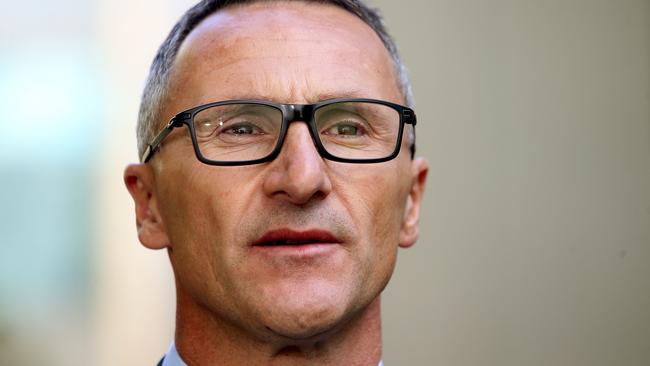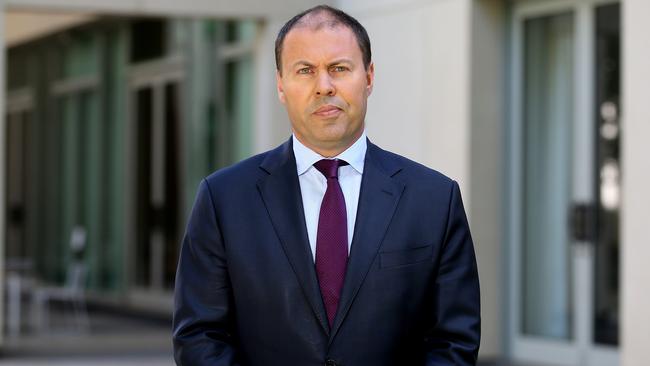
The Greens are an ugly sight under pressure. This is a party deluded by hubris, confused about its strategy, consumed by a moral vanity that wearies most people, and it has now been taught a crucial lesson about the power of the Labor Party as a progressive force.
Batman may yet become a turning point. It shows Victorian Labor able to repeat the performance of NSW Labor in the inner city and deny the surge of the Greens.
It throws into doubt an orthodoxy of our politics — that inner Sydney and Melbourne will finish up owned by the Greens, thereby forcing federal Labor governments down the track into governing alliances with them.
The message from Batman is that Labor will accommodate the growing regional and cultural diversity of Australia and retain its historic mission as a majority governing party. This result aligns Ged Kearney with Anthony Albanese and Tanya Plibersek as Labor progressives with superior appeal and better delivery capacity than the Greens.
The question posed by recent poor results is whether the Greens have peaked. The related question is whether their vote is falling as a trend.
It will take time for an answer since the Greens will probably poll better with a federal Labor government forced into mainstream policies and less able to play progressive beauty contests.
Green hubris is tied to Green moralism. The party lectures people about how they must live and is intolerant of others who don’t embrace its ideology. These are not traits that appeal to the Australian character. In Batman the Greens preached about Adani and refugees — they spoke to their community of partisans but failed to reach out and persuade.
Former Greens leader Bob Brown famously said: “We are not here to do a Don Chipp and keep the bastards honest. Our job is to replace them. I think there’s an inevitability about the Greens becoming one of the major parties. I read history. So the change I am talking about is not unprecedented.”
Today’s leader, Richard Di Natale, has championed an ambitious agenda for the Greens to become a party of government over a generation — winning up to 25 House of Representatives seats, but also insisting the party can retain its progressive principles.
Such dreams remain a fantasy. It is 20 years since the emergence of climate change as a dominant political and moral issue. The Greens have consistently demanded extreme emissions reduction policies but have lost their voting momentum. Their dilemma is obvious: if they stand by ideological gesture, they won’t be taken seriously; but if they run realistic policies, how do they differentiate from Labor and Liberal?
Former Labor minister Greg Combet nailed the Greens in 2014: “They have wrecked carbon pricing and climate change policy twice in this country — once when they voted with (Tony) Abbott to finish (Kevin) Rudd’s scheme and the other by insisting on targets that are economic lunacy.”
This week Di Natale revealed the purest Green reflex under pressure — go extreme on climate change. He told the Senate: “The government has been doing everything it can to slow this country’s transition to renewable energy and Australians are bearing the brunt of that failure” — pointing to the fires in NSW’s Tathra, Bega and in southwest Victoria, and the Darwin cyclone.
This typifies the big lie about climate change. The climate is changing and global emissions reductions are essential to address this. It is, by definition, a global issue. Australia, responsible for 1.3 per cent of global emissions, has a role to play as a constructive, contributing citizen. But claims that if Australia alone were doing more our bushfires and cyclones would be curbed is ludicrous.
Energy Minister Josh Frydenberg said: “As 1.3 per cent of the world’s emissions and a signatory to the Paris Agreement we play our part in the world’s collective action. It is dishonest in the extreme to suggest that Australia’s policies are responsible for extreme weather events … here or overseas.” Such Green dishonesty is endemic and rarely called out.
Suggestions from the Greens that the Turnbull government has culpability for the fires is cynical, ideological posturing. If you want an excuse to be disillusioned with a party, it’s hard to beat.

The Greens’ climate change policies are irresponsible and reckless. They advocate a 90 per cent renewable target by 2030, binding emissions reductions each year to 2050, and net zero or negative emissions within a generation. This reflects a disregard for the national economy and our living standards.
After their poor showing in South Australia and Tasmania — the Greens polled a weak 6.6 per cent in SA at the weekend compared with 8.7 per cent four years earlier — how did the Greens respond? By threatening to veto Steven Marshall’s new Liberal government’s support for the Turnbull government’s National Energy Guarantee. It was a message of sabotage on the first working day post-election.
This is significant because SA is the lead drafter and lead parliament for the National Electricity Law. Under the Australian Energy Market Agreement all national energy market legislation can be amended only with agreement of the Council of Australian Governments Energy Council, but it is the SA parliament that gives effect to new policy by passing the required bill.
This is called an “application of laws” model where one parliament passes a primary law and others pass a law that applies the SA law in their own jurisdiction. As far as can be ascertained no COAG authorised policy changes have been blocked in the SA parliament since this process began in 1996.
Frydenberg says: “In a situation where the NEG has the overwhelming support of the COAG Energy Council, it would be unprecedented and irresponsible in the extreme for the SA upper house to block this important and historic national reform. The SA parliament’s role is one where they are required simply to implement the will of the COAG Energy Council.”
The Greens will probably act in their usual role as climate change wreckers, in Combet’s immortal branding. The NEG is vital as the integrated climate and energy policy Frydenberg and Malcolm Turnbull plan to take to the next election. But its future will not depend on the Greens — that would mean certain doom.
Its future depends on Labor. And Labor, while drawn to the merit of bipartisanship, has two reservations — it worries the model retards competition by entrenching the market powers of the big players, and tips the scales against renewables.
The moral, again, concerns the limited utility of Green politics. Witness the classic from Di Natale yesterday when he compared the government’s position on climate change to that of the US National Rifle Association, which refuses to talk gun control after a massacre. Mathias Cormann, with restraint, merely said the government was taking effective action in accord with its Paris pledges.
The Greens cannot stomach compromise policy that seeks to balance competing economic and climate interests, the art of good government. In reply, Di Natale drew a link between the Adani mine and the bushfires via climate change. His logic: if you want to curb bushfires, halt Adani.
In reality, Australian climate change policy can no more curb fires in Tathra than it can in California. Such twisted logic plays to the ideological base of the Greens yet it confirms them as a protest party with an extreme vision that limits their electoral footprint.
Protest parties thrive because of disillusionment with the main parties and scepticism about the political system. Yet the Greens are producing their own sceptics. Voting Green is a form of therapy — it can make you feel better. But it won’t make any material difference to your life, your country or your planet.



